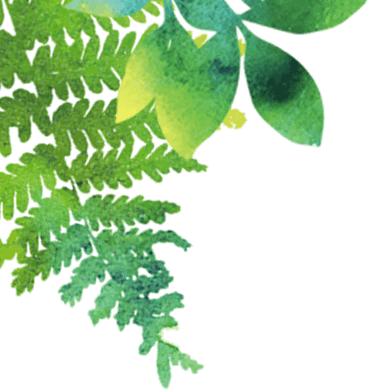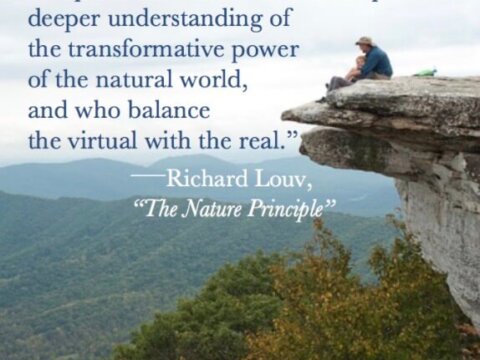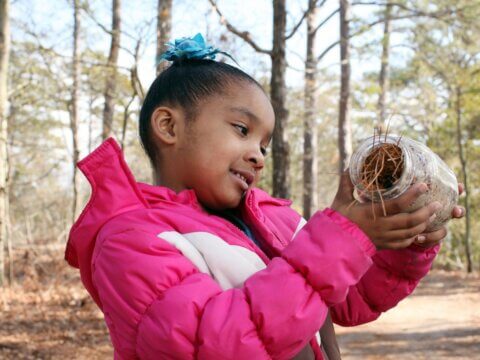ELSO’s summer STEAM camp connects Black and Brown youth to nature through culture
As a child, Sprinavasa Brown witnessed the goodness that the earth could yield.
She saw her great-grandmother save seeds from collard greens and plant them the next year. She also saw her great-grandmother make sun tea — a libation brewed by the sun and not in a kettle. And a kayaking trip connected her with the might, as well as the calming power, of water.
Those early experiences led Brown, whose name is a variation on that of an Indian scientist, Srinivasa Ramanujan, to devise a way to help Black, Latinx and Native American children cultivate a love for nature and science through cultural routes.
In 2015 Brown and Kellianne Richardson co-founded ELSO Inc., an acronym that stands for “Experience Life Science Outdoors.”
Based in Portland, Oregon, ELSO is a nonprofit that uses the natural world to pique youths’ interest in STEAM – Science, Technology, Engineering, Art and Math. It operates various programs to achieve that — a key one being its Wayfinders STEAM-based summer camp for 150 youths in grades K-8.

Participants in ELSO’s Wayfinders Program, a STEAM camp for K-8th graders. Photo courtesy of ELSO Inc.
“We really set out thinking about how to expose children to these different pathways within science. How do we help them stay the course when they’re in college, when there might be no one else who looks like them in the lecture hall?” said Brown, who serves as ELSO’s executive director.
“We thought about a camp being a great place to have an affinity space, where kids can see folks who look like them as their mentors – and learn from guest educators who look like them.”
What distinguishes ELSO, though, is that it infuses aspects of outdoor culture shaped by Black, Latino and Native American culture to help youth develop an interest in the outdoors – and a sense of belonging.
“There’s a misconception that Black people don’t care about nature, or that we don’t have a relationship with nature,” Brown said, during a workshop at the Children & Nature Network’s Inside-Out Conference in Atlanta. “It’s because of history that our relationship with nature has become disconnected. We also don’t intentionally call out pieces that are just part of our culture, like what we eat and how we grow our food — like having a yardbird [chicken] in the garden.”
ELSO strives to help Black, Brown and Native American youth find connections to those origins.
For example, at the conference, ELSO presenters covered a table with African fabric and laid out items to create connections.
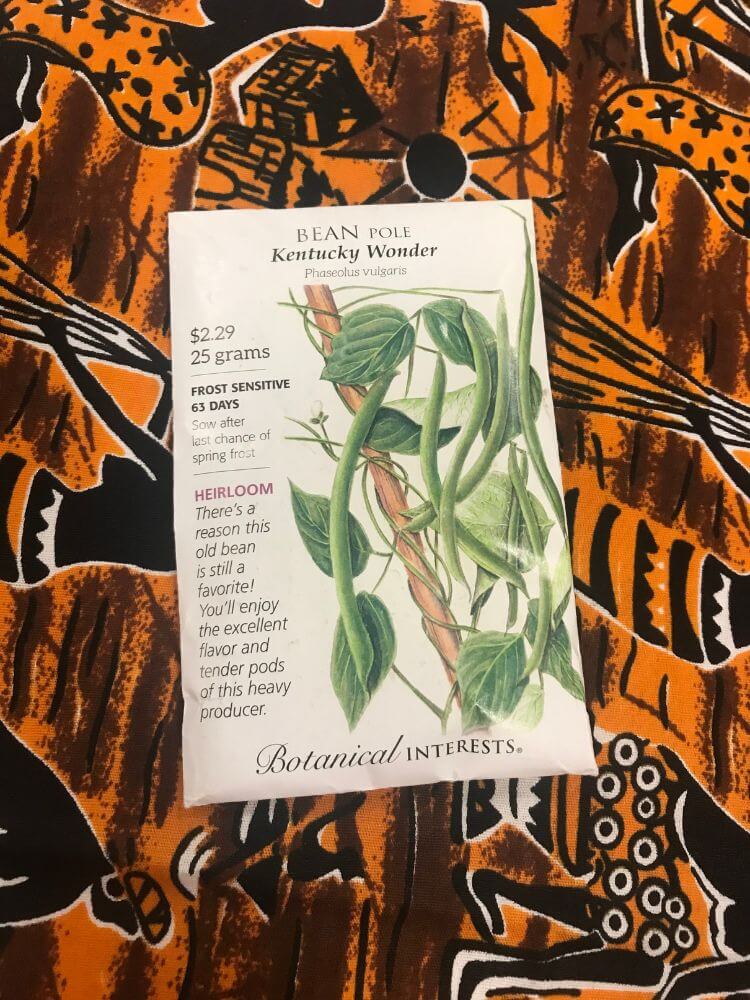
Packet of Kentucky Wonder seeds, a pole bean with roots in Central America.
They included packets of Kentucky Wonder seeds – pole beans originally cultivated in Central America that became fixtures in gardens of Black elders – and books such as “Rooted in the Earth: Reclaiming the African American Environmental Heritage,” and “Born on the Water,” the children’s book accompaniment to The New York Times’ 1619 Project, an initiative that documents the beginning and consequences of slavery in America, as well as the contributions of America’s Black people.
Preston Zimmerman, ELSO’s camp educator, revealed more of what native ancestors and Black elders knew the environment could offer.
He talked about how stinging nettle, which is mostly maligned for its toxicity to the skin, can be used to combat seasonal allergies.
“It’s one of the number one herbs you can use for seasonal allergies,” Zimmerman said. It’s also edible. “Tyron Creek State Park in Portland, Oregon, is full of stinging nettle. You can teach kids there to pick it, sauté it, and put it in salads.”
Zimmerman also talked about how ELSO helps youth find grounding through practices such as Kemetic yoga – a form of yoga rooted in ancient Egypt – and by putting their bare feet on, well, the ground.
“The purpose of us walking barefoot is so that we can connect with the earth,” said Zimmerman. “We can become grounded.”
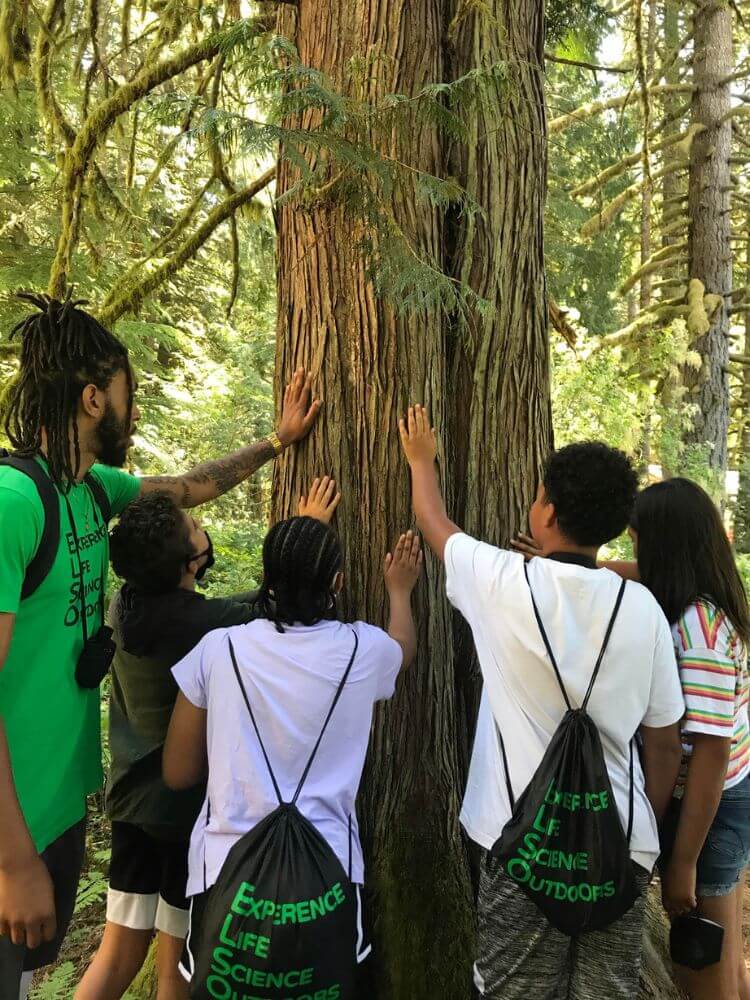
Youth connect with a tree during ELSO’s nature programming. Photo courtesy of ELSO Inc.
According to Zimmerman, such grounding is liberating for youth. “A lot of young people, whether they’re 6 or 16, don’t express to their parents what they’re dealing with, or what they’re going through, but when they come to camp it’s like a release for them.”
Brown also said that ELSO takes youth on field trips throughout the Pacific Northwest.
“Portland is great because it’s an hour from the mountains and an hour from the coast,” Brown said. “Our kids are used to seeing it, but they aren’t comfortable going out there. We try to get them in a safe space where they can try things like kayaking and canoeing.”

Table of books, seeds and trinkets which illustrate African origins in nature.
Still, helping youth find a cultural link is key, such as learning about the traditions of the Yoruba people, whose homeland is in present-day Nigeria. In the Yoruba religion, deities represent aspects of nature, Brown said.
“If you were to come out to our garden, first you would smell the incense, and the sage burning,” she said. “Preston might be making salves or essential oils with the children or talking about the symbolism behind the different colors used. They would then write about this in journals.”
One of those colors, yellow, represents Oshun – the Yoruba goddess of femininity, fertility and rivers. That’s a powerful connection to know while on the rivers.
“I definitely incorporate the Yoruba culture, and one of the things I show them is that before our ancestors came to this country, we had deities,” Zimmerman said.
“I teach them about Oshun during kayaking, and I say, ‘We have the power to do this!’”
The legacy and power of Black leadership in the outdoors
Celebrating Hispanic and Latinx leadership in the outdoors and environmental fields
Honoring Indigenous people and land
Research Digest: Healing power of nature for Indigenous children and youth
Watershed School keeps kids connected to nature, at home
Ron Griswell launches HBCUs Outside to share his love of the outdoors
-
Network News
Earth Day: Young leaders advocate for change
-
Feature
Nature photographer Dudley Edmondson has a vision for the representation of Black and Brown faces in the outdoors
-
Richard Louv
EARTH MONTH: You're part of the New Nature Movement if....
-
Voices
Placemaking: How to build kinship and inclusive park spaces for children with disabilities
-
Network News
Children & Nature Network founders release report on global factors influencing the children and nature movement
